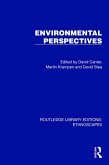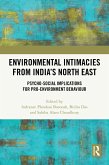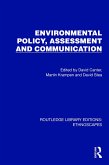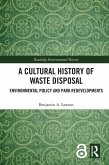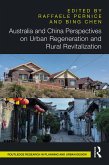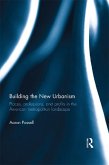Environmental Perspectives (eBook, PDF)
Redaktion: Canter, David; Stea, David; Krampen, Martin
52,95 €
52,95 €
inkl. MwSt.
Sofort per Download lieferbar

26 °P sammeln
52,95 €
Als Download kaufen

52,95 €
inkl. MwSt.
Sofort per Download lieferbar

26 °P sammeln
Jetzt verschenken
Alle Infos zum eBook verschenken
52,95 €
inkl. MwSt.
Sofort per Download lieferbar
Alle Infos zum eBook verschenken

26 °P sammeln
Environmental Perspectives (eBook, PDF)
Redaktion: Canter, David; Stea, David; Krampen, Martin
- Format: PDF
- Merkliste
- Auf die Merkliste
- Bewerten Bewerten
- Teilen
- Produkt teilen
- Produkterinnerung
- Produkterinnerung

Bitte loggen Sie sich zunächst in Ihr Kundenkonto ein oder registrieren Sie sich bei
bücher.de, um das eBook-Abo tolino select nutzen zu können.
Hier können Sie sich einloggen
Hier können Sie sich einloggen
Sie sind bereits eingeloggt. Klicken Sie auf 2. tolino select Abo, um fortzufahren.

Bitte loggen Sie sich zunächst in Ihr Kundenkonto ein oder registrieren Sie sich bei bücher.de, um das eBook-Abo tolino select nutzen zu können.
First published in 1988, this book looks at our growing understanding of the ways in which human actions are integrated within our knowledge of the places in which those actions occur. It also explores the social historical antecedents that give meaning to our everyday surroundings and the psychological underpinnings to aesthetic experience.
- Geräte: PC
- mit Kopierschutz
- eBook Hilfe
Andere Kunden interessierten sich auch für
![Environmental Perspectives (eBook, ePUB) Environmental Perspectives (eBook, ePUB)]() Environmental Perspectives (eBook, ePUB)52,95 €
Environmental Perspectives (eBook, ePUB)52,95 €![Environmental Intimacies from India's North East (eBook, PDF) Environmental Intimacies from India's North East (eBook, PDF)]() Environmental Intimacies from India's North East (eBook, PDF)43,95 €
Environmental Intimacies from India's North East (eBook, PDF)43,95 €![Environmental Policy, Assessment and Communication (eBook, PDF) Environmental Policy, Assessment and Communication (eBook, PDF)]() Environmental Policy, Assessment and Communication (eBook, PDF)54,95 €
Environmental Policy, Assessment and Communication (eBook, PDF)54,95 €![A Cultural History of Waste Disposal (eBook, PDF) A Cultural History of Waste Disposal (eBook, PDF)]() Benjamin A. LawsonA Cultural History of Waste Disposal (eBook, PDF)43,95 €
Benjamin A. LawsonA Cultural History of Waste Disposal (eBook, PDF)43,95 €![Australia and China Perspectives on Urban Regeneration and Rural Revitalization (eBook, PDF) Australia and China Perspectives on Urban Regeneration and Rural Revitalization (eBook, PDF)]() Australia and China Perspectives on Urban Regeneration and Rural Revitalization (eBook, PDF)42,95 €
Australia and China Perspectives on Urban Regeneration and Rural Revitalization (eBook, PDF)42,95 €![Building the New Urbanism (eBook, PDF) Building the New Urbanism (eBook, PDF)]() Aaron PassellBuilding the New Urbanism (eBook, PDF)46,95 €
Aaron PassellBuilding the New Urbanism (eBook, PDF)46,95 €![Diálogos: Placemaking in Latino Communities (eBook, PDF) Diálogos: Placemaking in Latino Communities (eBook, PDF)]() Diálogos: Placemaking in Latino Communities (eBook, PDF)48,95 €
Diálogos: Placemaking in Latino Communities (eBook, PDF)48,95 €-
-
-
First published in 1988, this book looks at our growing understanding of the ways in which human actions are integrated within our knowledge of the places in which those actions occur. It also explores the social historical antecedents that give meaning to our everyday surroundings and the psychological underpinnings to aesthetic experience.
Dieser Download kann aus rechtlichen Gründen nur mit Rechnungsadresse in A, B, BG, CY, CZ, D, DK, EW, E, FIN, F, GR, HR, H, IRL, I, LT, L, LR, M, NL, PL, P, R, S, SLO, SK ausgeliefert werden.
Produktdetails
- Produktdetails
- Verlag: Taylor & Francis eBooks
- Seitenzahl: 326
- Erscheinungstermin: 7. November 2024
- Englisch
- ISBN-13: 9781040150320
- Artikelnr.: 72335367
- Verlag: Taylor & Francis eBooks
- Seitenzahl: 326
- Erscheinungstermin: 7. November 2024
- Englisch
- ISBN-13: 9781040150320
- Artikelnr.: 72335367
- Herstellerkennzeichnung Die Herstellerinformationen sind derzeit nicht verfügbar.
David Canter is Emeritus Professor at The University of Liverpool, UK. Having set up the first MSc in Environmental Psychology at The University of Surrey in 1972, he went on to establish the Journal of Environmental Psychology in 1980, editing it for 20 years. Soon after he founded the International Association of People-Environment Studies (IAPS). David has published widely on many aspects of human interactions with their surroundings; his 1977 book The Psychology of Place, being one of the most cited publications in the area. Martin Krampen (1928-2015) was a leading German semiotician. He worked in the field of visual semiotics and environmental perception, as well as being a professional artist. Over the course of his career Krampen held position at universities across North America and Europe teaching courses in social psychology, semiotics, and the psychology of design. He was the University of Waterloo's first full-time research associate, where he worked alongside Professor George Soulis to study the influence of design on industry. Krampen taught Visual Communication at Hochschule der Künste from 1977 until his retirement in 1993. David Stea is Professor Emeritus of Geography and International Studies at Texas State University and Research Associate with the Center for Global Justice in Mexico. As Carnegie Interdisciplinary Fellow at Brown University from 1964 to 1966, he developed the new field of Environmental Psychology and the related study of spatial and geographic cognition. David is a member of the editorial boards of a number of journals, the co-author or co-editor of several books and author of some 150 articles and book chapters on various subjects, including sustainable development and environmental issues in Latin America. In 1987 he was nominated for the Right Livelihood Prize (also known as the "alternative Nobel") for his international work with indigenous peoples.
New Series Introduction to the Reissue David Canter and David Stea. New Directions in Environmental Research. Editors' Introduction David Canter, David Stea and Martin Krampen. Section One: Perspectives on Actions and Places 1. Action and Place: An Existential Dialectic David Canter 2. Environmental Perception: An Ecological Perspective Klaus Landwehr 3. Home and the Theory of Place Vittoria Giuliani, Mirilia Bonnes, Flora Amoni and Yvonne Bernard 4. Cultural Aspects of Place Consciousness and Environmental Identity Boyowa A. Chokor Section Two: Social Histories of Built Form 5. Cultural Production and Reproduction Anthony King 6. Urban Social History Gilles Barbey 7. Socio-Cultural Aspects of Built Form Rena Papageorgiou-Sefertzi and Aristie Papadopolou 8. Building a House or a Social Universe? Catherine Mougenot 9. Urban Open Space Perla Korosec-Serfaty 10. Social Architecture - William Morris our Contemporary Alan Lipman and Howard Harris 11. The 'Environmental Psychology' of Theatres and Movie Palaces Ross Thorne Section Three: Aesthetics and Meaning in Architecture 12. Meaning in Architecture: Post-Modernism, Hustling and the Big Sell Paul Harries, Alan Lipman and Stephen Purden 13. Complexity, Order and an Architectural Aesthetic Peter Smith 14. Contextual Compatibility in Architecture Linda Groat 15. Explorations in Ecoanalysis Arie Peled 16. The Significance of Imagination and Its Place in Architectonic Creation Klaus Peter Walcher. Brief Biographies of Contributors. Index.
New Series Introduction to the Reissue David Canter and David Stea. New Directions in Environmental Research. Editors' Introduction David Canter, David Stea and Martin Krampen. Section One: Perspectives on Actions and Places 1. Action and Place: An Existential Dialectic David Canter 2. Environmental Perception: An Ecological Perspective Klaus Landwehr 3. Home and the Theory of Place Vittoria Giuliani, Mirilia Bonnes, Flora Amoni and Yvonne Bernard 4. Cultural Aspects of Place Consciousness and Environmental Identity Boyowa A. Chokor Section Two: Social Histories of Built Form 5. Cultural Production and Reproduction Anthony King 6. Urban Social History Gilles Barbey 7. Socio-Cultural Aspects of Built Form Rena Papageorgiou-Sefertzi and Aristie Papadopolou 8. Building a House or a Social Universe? Catherine Mougenot 9. Urban Open Space Perla Korosec-Serfaty 10. Social Architecture - William Morris our Contemporary Alan Lipman and Howard Harris 11. The 'Environmental Psychology' of Theatres and Movie Palaces Ross Thorne Section Three: Aesthetics and Meaning in Architecture 12. Meaning in Architecture: Post-Modernism, Hustling and the Big Sell Paul Harries, Alan Lipman and Stephen Purden 13. Complexity, Order and an Architectural Aesthetic Peter Smith 14. Contextual Compatibility in Architecture Linda Groat 15. Explorations in Ecoanalysis Arie Peled 16. The Significance of Imagination and Its Place in Architectonic Creation Klaus Peter Walcher. Brief Biographies of Contributors. Index.

